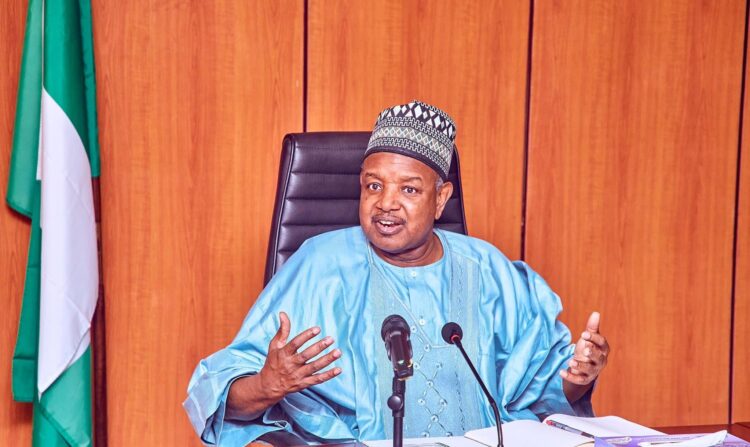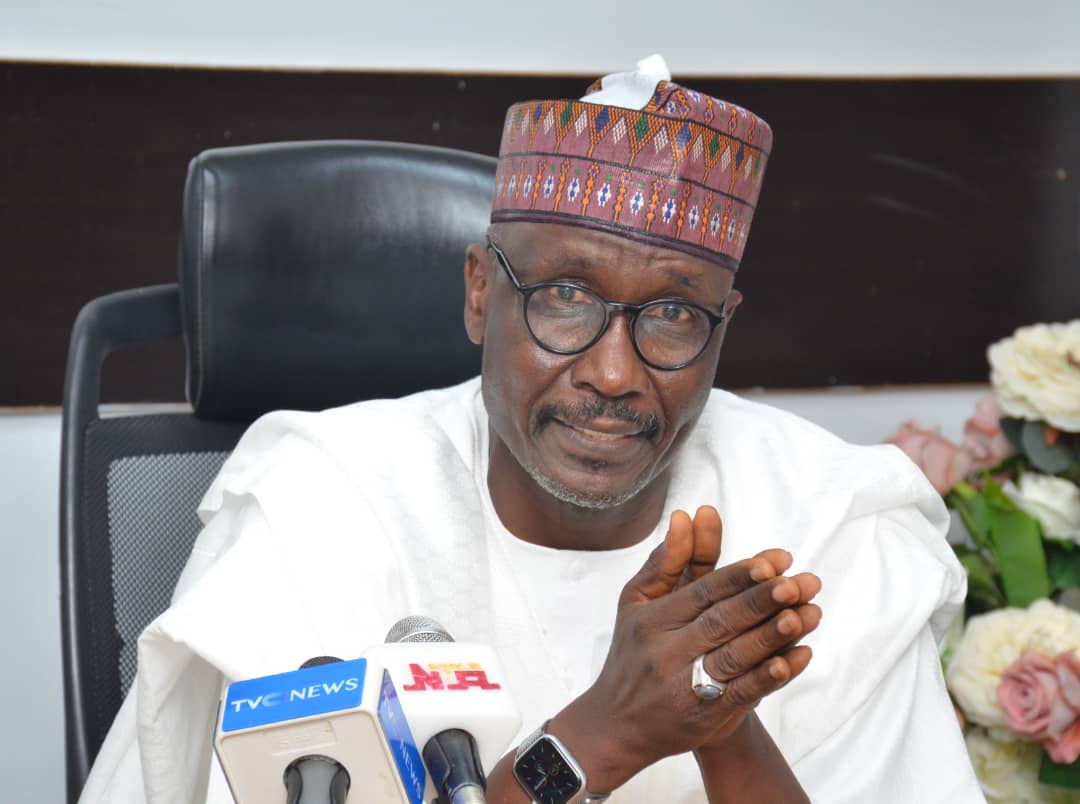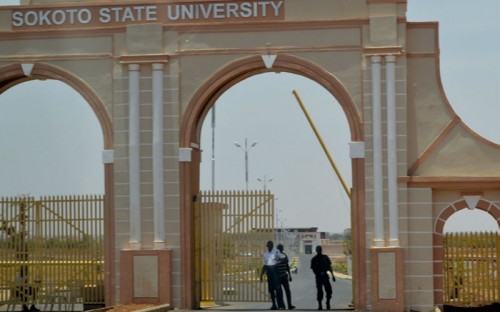Metro
Much Ado About The Samoa Agreement By: A G Abubakar

Nigerians, it would appear, are always on a lookout for opportunities to “create a storm in a tea cup” or a “mountain out of a mole.” For a week or so, the media, both traditional and social, have been awash with news concerning the “Samoa Agreement” as signed by the Nigerian government.
A section of the media/clergy contended that the Agreement obligated its signees to recognise the sexual orientation rights of individuals to be a lesbian, gay, bisexual, transgender, or queer (LGBTQ+), and more (+) such as a “non-binary” etc. Some went further to allege that government was preparing towards legalisation of same-gender marriages among the LGBTQ+ community in Nigeria, ultimately.
From nowhere, a section of the society went to town with the accusations that the government had signed to subscribe to the practice of LGBTQ+ in Nigeria which in their considered options run counter to peoples’ moral, cultural and religious values, which should be stopped at all cost!
Truth was that many of the traducers of the government had not read the Samoo Agreement because there was no reference whatsoever to the acronym “LGBTQ+,) in the entire text. When that was pointed, then they made recourse to the existence of the word “gender rights,” maybe as a second thought, to maintain their unfounded claim/stand.
Unfortunately, too, the use of the phrase “gender rights” has been an integral part of the UN System for about half a century to date. Since the need to improve the lots of womenfolk, dawned on humanity in the 70s and 80s, one of the lexicons so adopted include “gender rights.” This represents a mellowed version of earlier ones such as ‘gender equality’, “what a man can do, a woman can do (even better),” etc.
Other euphemisms and/or diplomatic languages were brought in later just to assuage apprehensions and sensibilities with the use of “gender equity,” instead of gender equality, or the “affirmative” action. It was also around the time that some women (and men) too started using such phrases as “Chairperson” when the occasion was being chaired by a woman, instead of the generic “Chairman.” Most people understood these paradigm shifts without imputing a foul play.
Furthermore, most of the programme support documents (PSD) by both multilateral and bilateral doner agencies are replete with the word “gender,” “gender rights,” “gender mainstreaming,” and “gender support,”. These aspirations towards the development of the women segment culminated in the 1995 Beijing Platform for Action, where nations affirmed their commitment to “ensure greater equality and opportunities for women and men, girls and boys.”
It went on to recommend to UN member nations to strive to set aside 30% of national endeavours to women for a start. First ladies from member countries of the UN including some from the Muslim countries of the Middle East and Asia, were in attendance. In fact, sections of the women activists have since been calling for more, out of enthusiasm. The more ambitious ones aspired for a 50:50 ratio between men and women by the year 2020, christened 2020-5050.! Those conversant with the provisions of MDG, SDG documents of the UN, and also that of bilateral donors such as USAID (USA), JICA (Japan), GIZ (Germany), QC (Qatar Charity) including the World Bank/IMF can attest to this.
At the home front, the various national vision frameworks articulated by successive governments, which were basically mutants/clones, also made copious use of the vocabularies and phrases. The Vision 2010, 2020, the NEEDs patterned their contents along the donor-countries’ approaches/frameworks as well. The goals and objectives of defunct programmes like the Better Life for Rural Women (BLRW), FEAP, FSP, WID, Child Care Trust, WOTCLEF etc in Nigeria, were largely gender-biased.
Now, some are calling for the interrogation of the definitions of both words, gender and right, in what looks like an attempt to split hair. The fact remains that the definitions from various self- respecting sources have “largely” defined them with reference to “roles,” “responsibilities,” and “opportunities” in domestic/household and national settings. And for “rights” on its own, it is a neutral word.
The Collins English defines gender as “the state of being male or female in relation to social and cultural roles that are considered appropriate for men and women.” The Oxford Dictionary considers gender to be male of female especially with reference to “social and cultural differences rather than biological ones, or one of a range of ‘identities’ that do not correspond to established ideas of male and female.
May be it’s the “other identities” that poisoned the understanding of the concept. In climes where mutual distrust wasn’t part of the citizens’ DNA, imputing “where applicable” to references made to “other identities” would have sufficed since the document is a global one. The language of treaties, coventions, and international relations are usually read and understood in both spirit and letter. For, neither spirit or letter alone meets diverse expectations.
If the vehement opposition to the Samoa Agreement has been directed in equal measure against vices that the Almighty Himself hates such as corruption, injustice, transgression/fasadi (immorality, falsehood, exploitation, manipulation) and nepotism in society, Nigeria would not have been this “devasted.” Turning one’s back against these iniquities too is a way of soliciting for God’s mercy in the Hereafter, but for which many of those up in arms against the Samoa Agreement are seemingly, ready to dispense with, in preference for selling the false image of piety to the World. A sheer hypocrisy?
In any case, this is Nigeria. A land of enormous chasm and schism where mutual suspicion has been elevated to an art form. A society that has so programmed its citizens to generally perceive more negativity than positivity in national life and conspiracy theories as a national pastime.
The uproar against the Samoa Agreement is the latest in the series. Something new may crop to keep people talking once more in a few day’s time, thus consigning Samoa Agreement to the archive. One wishes, Nigeria is a productively engaging nation where citizens shall be busy making contributions towards nation building instead of finding reasons to pull her down under self-serving guises.
A.G.Abubakar agbarewa@gmail.com
Metro
Groups condemn sponsored protests, media attacks against ex-NNPCL boss Kyari

Coalition Of Civil Society Organisations In Nigeria (COCSON) and Bloggers and Vloggers, Content Creators Association (BAVCCA) have warned against politically engineered protests against the immediate past Group Chief Executive Officer (GCEO) of the Nigerian National Petroleum Company Limited (NNPCL), Malam Mele Kyari, who “served the nation faithfully.”
In a statement jointly signed on Thursday by COCSON’s National Mobilisation Officer Comrade Tabuko Kennedy and BAVCCA’s Spokesperson Efe John Abayomi, the two groups urged President Bola Tinubu to overlook undue distraction from enemies of his administration while rejecting a calculated attempt to malign the person and office Kyari hitherto held concerning the $2 billion crude-for-loan deal.
COCSON and BAVCCA chided agents of mischief and fake news merchants over baseless media attacks on the former NNPCL GCEO while urging anyone with genuine proof of Kyari’s wrongdoing while in office to present it through proper legal channels and not through sponsored headlines and mob protests.
The groups maintained that Kyari has done everything a true patriotic and honest leader can do. In a very difficult economic crisis and Part of the solution to Nigeria’s foreign exchange challenge, a puzzle that nearly crumbled the economy.
The statement read in part:
“We will not sit back and watch a reformer be sacrificed on the altar of politics. We call on our progressive President Bola Ahmed Tinubu to remain steadfast and not allow these desperate tactics to distract his government from the broader goal of sanitizing the petroleum sector.
“If anyone has genuine proof of wrongdoing, let them present it through proper legal channels — not through sponsored headlines and mob protests.
“Mele Kyari has done everything a true patriotic and honest leader can do. In a very difficult economic crisis, He stood for the greater good of all Nigerians instead of a few cabals. He has been Part of the solution to Nigeria’s foreign exchange challenge, a puzzle that nearly crumbled the economy.
“Let us be clear: this is not a scandal — it is a structured misrepresentation of a standard commercial transaction that predates this administration and has been carefully supervised under the regulatory and sovereign structures of the Federal Government of Nigeria.
THE TRUTH THEY WON’T TELL YOU:
“The $3.3 Billion Crude-Backed Loan Was a Sovereign Deal: This transaction, executed in collaboration with Afreximbank and backed by the Federal Government, was designed to stabilize Nigeria’s foreign exchange reserves and provide a buffer against economic shocks — not to “mortgage Nigeria’s future” as ignorantly portrayed by politically motivated street protesters hired by ungrateful elements working against the progressive leadership of President Bola Ahmed Tinubu.
“Kyari Was Not Acting Alone: Every stage of the crude-for-loan framework was vetted by relevant agencies — including the Ministry of Finance, Debt Management Office, and the Attorney General’s Office. Kyari was executing national policy, not personal ambition.
“No Missing Crude, No Diversion of Funds: There is zero evidence of crude diversion, missing shipments, or financial misappropriation. All proceeds and repayment schedules are transparent, documented, and auditable. Anyone who has a valid case should first present proof of his claims instead of taking Nigerians’ collective sense of judgment for a ride.
“Kyari Has Been Nigeria’s Most Transparent NNPC Boss in Decades: Under Kyari’s leadership, NNPC was transitioned into a commercially-run, limited liability company. For the first time in NNPC’s history, its books are published, audited, and made public. That’s not corruption — that’s reform.
PRESIDENT TINUBU REPOSES TRUST IN MELE KYARI
“On January 8, 2025, President Bola Ahmed Tinubu commended the former NNPCL GCEO, Mallam Mele Kyari, on his 60th birthday, praising his service and integrity. In the President’s words, “Kyari is a shining example and embodiment of the ideals of the Renewed Hope Agenda. I commend his commitment to creating new opportunities and ensuring the growth and sustainability of Nigeria’s energy sector.” This statement, made soon after Kyari’s exit, makes it clear that his departure was not a dismissal but a smooth transition, with his legacy of reforms and achievements in the oil and gas sector fully recognized and appreciated at the highest level.
“The Protest Is Politically Engineered: We have credible information that certain vested interests, threatened by the sanitization of the oil sector, are sponsoring protests and media hysteria to derail reforms and force Kyari out.
“We stand with Mele Kyari. We stand for due process. We stand for national interest.”
Metro
KAM Holding GMD Felicitates Emir Of Ilorin On 85th Birthday

- Describes Emir As Harbinger Of Hope, Development
Stephen Olufemi Oni, Ilorin
The Group Managing Director of
KAM Holding Ltd, Dr. Kamoru Yusuf, has felicitated the Emir of Ilorin, Alhaji Ibrahim Sulu-Gambari on the occasion of his 85th birthday.
Yusuf, in a congratulatory message, praised the Emir for being an harbinger of hope and development.
The business mogul expressed delight that the reign of Sulu-Gambari has brought unparalleled development to Ilorin Emirate and Kwara State as a whole.
Yusuf added: “It is heartening that Allah has preserved Your Highness for us to cover this mileage with truckload of accomplishments in all spheres of human endeavour.
“No doubt, Ilorin has grown to be a Cosmopolitan City during your reign, and this is an attestation to Your Highness’s pragmatic leadership. With the level of growth and development in Ilorin among its contemporaries, I am of implicit confidence that what has been achieved is just a precursor for more goodies in the offing.
“On behalf of my family, management and staff of KAM Holding Limited, I congratulate Your Highness and wish you longevity of life with sound health.”
Ends
Metro
Fire Destroys Newly Built Female Hostel at Sokoto State University

A newly constructed female hostel at Sokoto State University was engulfed by fire on Tuesday, causing panic among students and staff.
The blaze, which started around 3:30 p.m., completely destroyed the building, which had been built to ease accommodation challenges. While the cause remains unknown, a student noted that those initially assigned to the hostel had already been relocated before the incident.
Confirming the fire, the Students’ Union President said firefighters arrived at the scene by 5:00 p.m. to combat the flames. However, authorities have yet to release an official statement on the cause or extent of the damage.
-

 Uncategorized5 years ago
Uncategorized5 years agoFG, states urged to harness flooding for ranching, others with technology – Agbaje
-

 Headlines10 years ago
Headlines10 years agoBreaking: EFCC seals Borno House of Assembly, as Hon members take to their heels
-

 News12 years ago
News12 years agoNigeria Security Operatives Stage Manhunt For Homosexual Perpetrator
-

 News9 years ago
News9 years agoHow 21-year-old Girl fled community over accusation of lesbianism
-

 News10 years ago
News10 years agoYobe Gov Moves Against Deputy
-

 Opinion7 years ago
Opinion7 years ago7 signs she has friend zoned you
-
Technology4 years ago
Online job placement company headhunts women
-

 Headlines10 years ago
Headlines10 years agoBorno Dep Gov Abducts Another Church Leader





